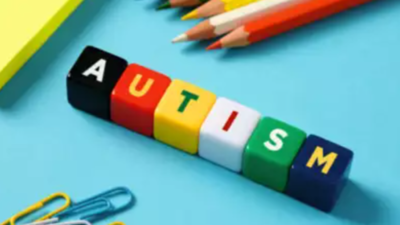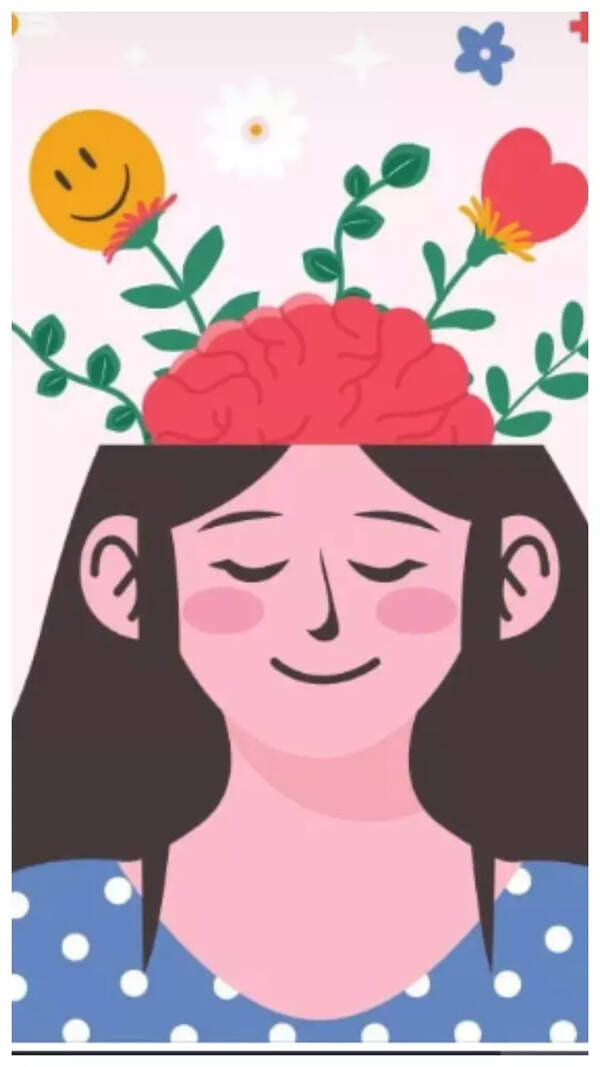- News
- City News
- chennai News
- ‘Just playful’ or on the spectrum? Tune in to telltale signs
Trending
‘Just playful’ or on the spectrum? Tune in to telltale signs
CHENNAI: Speak to 21-year-old Ashok casually and you wouldn’t find anything different about him; he has had a good academic record and goes for movies and outings with friends on weekends. Ashok recently received an offer letter from an IT firm via campus placement and is all set to join his first job.
But then, only his parents remember the countless therapy sessions and shifting of schools they tried out, to turn him into the independent and self-sufficient young man he is today — from the child who would run out of the classroom all the time, who would be rattled by the noise of a cooker whistling.
You Can Also Check: Chennai AQI | Weather in Chennai | Bank Holidays in Chennai | Public Holidays in Chennai
Ashok’s condition — mild autism (percentage of ASD or autism spectrum disorder ranges from 0-100), with a comorbidity of Attention Deficit Hyperactivity Disorder, could have been missed by many parents, as he wasn’t severely or obviously autistic, but the moment she noticed something off, his mother, Malini K, consulted a paediatrician. “Treatment options weren’t as developed 18 years ago. But if I had tried to hide his diagnosis, his strengths wouldn’t have emerged. My only priority was his needs,” she says.
Such is the stigma around the term that when it comes to ASD that many parents refuse to acknowledge the condition or try to hide it, delaying intervention at the right time, especially in India. While severe autism will be obvious by the age of five or six, mild cases could go unnoticed well into primary school.
“Parents come to me asking for speech therapy for the child,” says K Sreedevi, remedial therapist. “The signs of ASD would be obvious, but they would refuse to accept it, ‘he is just playful’. Sometimes, I pretend to agree and start on the intervention.” In new age schools. even when a Class II child is unable to read, it’s let off as normal, which delays intervention, she says.
Even some paediatricians brush it off, saying the child will start speaking in a few years, but if undetected and untreated, mild autism can turn moderate; and if never addressed, it can cause severe difficulties in adulthood, including in day-to-day activities involving socialising, emotional regulation, peer group and intimate partner relations.
But what are the signs to watch out for? “Shared play is an early step in social development, where children take turns and interact with others using toys.
However, children with ASD may struggle with joint or pretend play. These could also signal other developmental issues, so it's important for parents to consult a paediatrician or child psychiatrist early,” says Dr Sanjeev. At the same time, the child would be able to do age-appropriate non-verbal work, says Dr B S Virudhagirinathan, neuropsychologist and director, Care Institute of Behavioural Sciences, Chennai. “But verbal skills might be several years behind. The condition most often occurs in combination with ADHD in most children, and these should be treated separately.”
Dr Virudhagirinathan advises against moving the child to a special school, as children learn by imitation.
He recommends slow exposure to peer interaction through non rule-based games such as skating and swimming, for those with up to 40% severity.
Regular, inclusive schools, where the number of children in the class is low is ideal, and a shadow teacher can help when needed, says clinical psychologist and behavioural therapist Sharanya Ravichandran. “Parental stimulation is crucial; parents have to avoid screens first." Sharanya suggests an orientation of such conditions right during pregnancy, as many parents who approach her had not even heard of ASD.
“Kindergarten teachers play a key role in detection, and a checklist for autism in toddlers can help teachers refer them to a child psychiatrist. In several countries, teachers are trained to spot early signs of disabilities based on play skills,” says Dr Sanjeev.
Ashok still has some residual symptoms; once he gets comfortable with someone, he could rattle on endlessly about certain subjects of interest to him but his mother gives him an ‘invisible’ sign and he stops immediately.
Those with mild autism are often quite successful in life, says Dr Lakshmi Krishnamurthy, psychiatrist at SCARF, Chennai, as they could be brilliant in certain fields. She recalls the case of a boy who was poor in languages and so socially awkward that he wouldn’t speak to anyone in school but was good in math. “He works from home as an ethical hacker now and earns up to Rs 30 lakh a year. His social skills are compromised and he has to be compelled to exercise, but he is happy with himself.”
End of Article
Follow Us On Social Media










